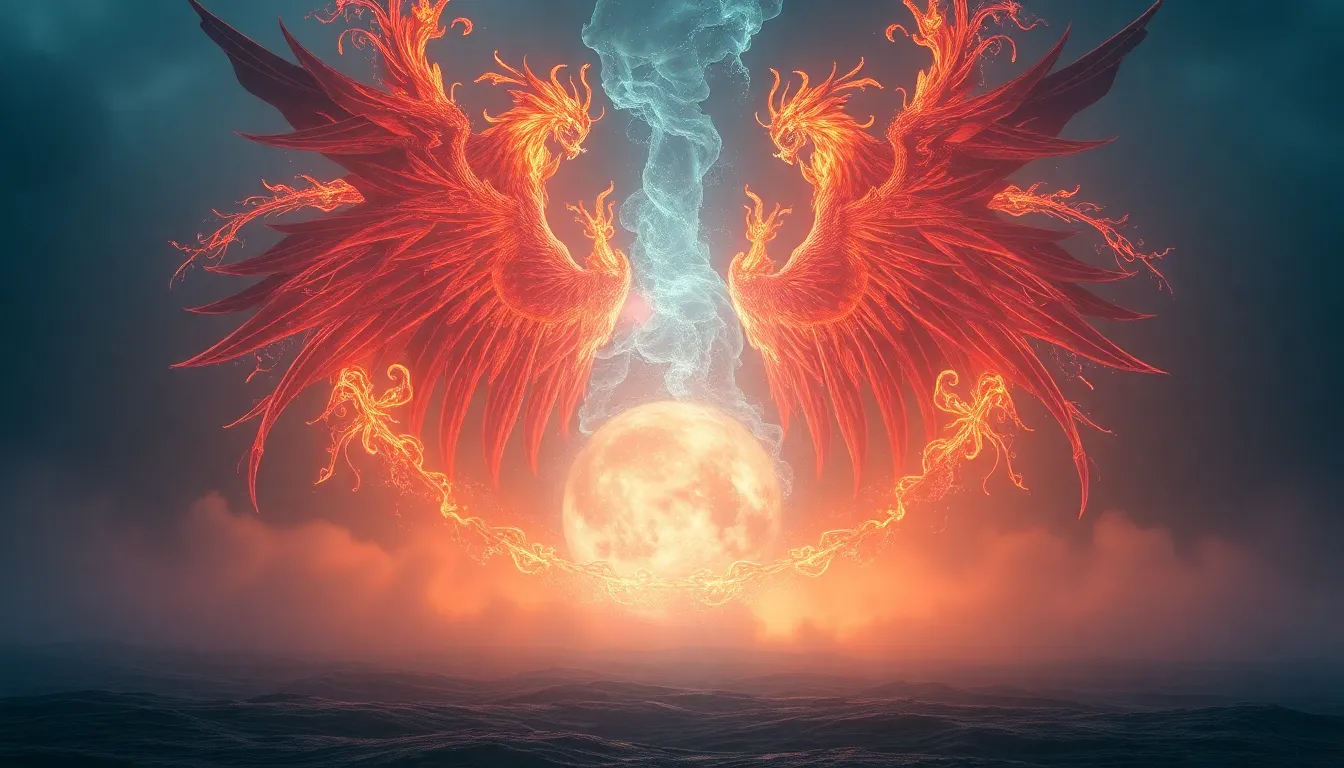The Power of Change: Mythical Transformations That Defy Explanation
Introduction to Mythical Transformations
Mythical transformations refer to profound changes that characters undergo in various stories, often depicted in folklore, fairy tales, and religious texts. These transformations can be physical, psychological, or spiritual, symbolizing the journey from one state of being to another. Across cultures, such transformations hold significant meaning, representing the struggles, growth, and evolution of individuals and societies.
Historical Context of Transformation Myths
Throughout history, ancient civilizations have crafted tales of transformation that reflect their values and beliefs. For instance:
- Greeks: The myth of Daphne transforming into a laurel tree to escape Apollo illustrates themes of desire and divine intervention.
- Egyptians: The story of Osiris, who was transformed into a god after his death, embodies the cycle of life and resurrection.
- Native American cultures: Many tribes have tales of animals transforming into humans, symbolizing interconnectedness and respect for nature.
These stories have profoundly influenced societal values, instilling lessons of resilience, adaptability, and the importance of change.
The Role of Nature in Transformational Myths
Nature often plays a pivotal role in catalyzing transformations within folklore. Many myths depict natural elements as the driving force behind profound changes:
- Metamorphosis: In Greek mythology, the tale of Arachne, who is transformed into a spider by Athena, highlights themes of hubris and humility.
- Seasons: The cycle of seasons in various myths symbolizes the inevitable changes in life, such as the transformation of Persephone in the underworld.
Natural transformations serve as metaphors for human experiences, emphasizing the cyclical nature of life and the changes that come with it.
Human Transformations: Beyond Physical Change
While many myths focus on physical transformations, they often delve deeper into psychological and emotional changes. Characters frequently undergo profound internal transformations that reflect their journeys:
- Frankenstein: Victor Frankenstein’s transformation is not merely physical but a reflection of his ambition and the consequences of playing god.
- Beauty and the Beast: The Beast’s transformation back into a prince symbolizes redemption and the power of love to change one’s nature.
These narratives illustrate that transformation encompasses more than just outward appearances; it also involves growth, understanding, and a deeper connection to self.
Symbolism of Transformation in Mythology
Mythological transformations are often accompanied by rich symbolism, with certain images consistently representing change across cultures:
- Butterflies: Often symbolize metamorphosis, representing personal growth and the beauty of change.
- Phoenix: A symbol of rebirth, the phoenix rises from its ashes, demonstrating resilience and the cyclical nature of life.
- Snakes: Frequently associated with renewal and transformation, snakes shed their skin, symbolizing the shedding of old identities.
These symbols resonate universally, serving as potent reminders of the transformative power of change in our lives.
Transformation and Identity: The Fluidity of Self
In many mythological stories, transformations challenge and redefine personal and cultural identities. Characters often grapple with their new identities following a change:
- Pinocchio: The puppet’s journey to becoming a real boy symbolizes the quest for identity and the complexities of moral growth.
- Metamorphosis by Franz Kafka: Gregor Samsa’s transformation into a bug highlights feelings of alienation and the struggle for identity in a conformist society.
These narratives invite reflection on the fluidity of identity and the ways in which change shapes who we are.
Modern Interpretations of Mythical Transformations
Today, the themes of transformation continue to resonate in contemporary media. Modern interpretations can be seen in:
- Film: Movies like “The Shape of Water” explore themes of transformation and acceptance in unique ways.
- Literature: Books such as “The Alchemist” by Paulo Coelho delve into personal transformation and the pursuit of one’s dreams.
- Art: Artists often depict transformative themes through various mediums, illustrating the timeless nature of these concepts.
These representations underline the relevance of ancient myths in today’s society, reminding us that transformation is a universal experience.
The Psychological Impact of Transformation Myths
Transformation myths can have a profound psychological impact, offering insights into personal growth and development. The stories can serve as therapeutic tools, helping individuals navigate their journeys:
- Empowerment: Myths can inspire individuals to embrace change, fostering a sense of agency and resilience.
- Healing: Engaging with transformation narratives can aid in processing trauma and understanding personal struggles.
The therapeutic applications of these stories highlight the importance of change in fostering emotional and psychological well-being.
Critiques and Controversies Surrounding Transformation Myths
While transformation myths often inspire, they can also lead to critiques and controversies, particularly regarding cultural appropriation and misinterpretation. Issues to consider include:
- Cultural Misrepresentation: The appropriation of myths can dilute their significance and misrepresent the cultures they originate from.
- Simplistic Interpretations: Oversimplifying transformation myths can lead to misunderstandings about the complex nature of identity and change.
Engaging with these narratives requires sensitivity and awareness to honor their origins and meanings.
Conclusion: Embracing the Power of Change
In conclusion, mythical transformations offer rich insights into the human experience, illustrating the profound power of change. From ancient tales to modern interpretations, these narratives encourage us to reflect on our own transformations and the significance they hold in our lives. Embracing change can lead to personal growth, deeper understanding, and a better connection with ourselves and the world around us. As we navigate our journeys, may we find inspiration in the myths that celebrate the transformative power of change.


